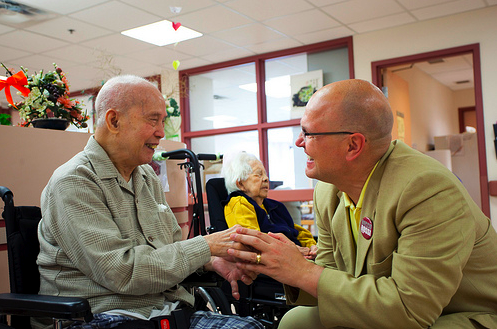High demand of Finnish healthcare expertise in UAE
http://www.finlandtimes.fi/health/2015/02/05/13960/High-demand-of-Finnish-healthcare-expertise-in-UAE
Pin It

http://www.finlandtimes.fi/health/2015/02/05/13960/High-demand-of-Finnish-healthcare-expertise-in-UAE
Pin It

See the list of our articles that have been the most attractive to readers.
Of course. All of our med-gadget reviews were good selling when it came to reading.
New ultrasound could mean end of stethoscope. The days of the doctor’s stethoscope could be coming to an end thanks to modern ultrasound devices. Read more:
https://medlines.org/new-ultrasound-mean-end-stethoscope/
We gave a close medical coverage on the topic. No wonder on of the article was the leading article in this year.
A Hungarian surgeon to help Schumacher? Dr. Csókay has suggested the application of his technique The application of vascular tunnels could help the racing driver, according to the Hungarian neurosurgeon. Read more:
https://medlines.org/hungarian-surgeon-help-schumacher/

Serbia intends to legalize marijuana for medical uses. Serbian media reported in this march that the Government’s intention to legalize marijuana for medical uses. Read more:
https://medlines.org/serbia-intends-legalise-marijuana-medical-uses/
In April 2014 The German Medical Association has published it’s survey regarding the state of healthcare and health workers of Germany. All stats were published ont he site. Readers are really into recruitment trends, and in the migration of the healthcare sector workers. Read more: https://medlines.org/rising-number-foreign-doctors-germany/
Doctors at a clinic in Germany report that the TV show House (also known as House, M.D.) provided them with an unexpected diagnosis for a heart failure patient.
Read more: https://medlines.org/tvs-fictional-dr-house-helps-diagnose-heart-failure-patient/
Pin It


The British National Health Service is looking to take on 2,500 new Polish nurses it was reported this week, in an attempt to help cut down on translation costs.
According to TVN, hospitals in the UK are currently hoping to recruit medical personnel from a number of Eastern European countries – with Poland being one of the main nations – due to the ever-growing number of foreign patients and translation bills.
The station states that, at present, Britain is forking out GBP 23 mln per year on translation fees – a figure it is drastically looking to slash.
One association interested is the United Lincolnshire Hospitals NHS Trust (ULHT) which operates three hospitals in the Lincolnshire County and provides medical services for a number of other institutions in the region. However, according to one representative, nothing has yet been signed. “We are keen on such a programme but so far there are no concrete plans for recruiting in Poland,” they said. Such statements were also echoed in Kings Lynn, Norfolk.
The station claims that data it gathered via the UK’s Mail on Sunday newspaper shows in 2020, translation costs were costing the country GBP 45,000 per day. This has continued to rise – to GBP 57,000 in 2012 – and is now an estimated GBP 63,000.
http://www.newpolandexpress.pl/polish_news_story-7014-uk_hunts_for_polish_nurses.php
Pin It

Dutch people believe that the Cabinet plans for free home care to family and friends puts increasing pressure on individuals who have to care for friends or family by themselves according to The Netherlands Institute for Social Research (SCP), the NRC writes.
“Offering intensive care for too long can lead to overburdening, especially if you give that care alone”, the researchers write.
According to the NRC, there is willingness in The Netherlands to give unpaid home care to family and friends, but there are some who believe that the pressure will be too much. The research from the SCP is based on discussions with 400 people, including a large amount of informal carers and volunteers in care work.
The SCP writes that there are currently an estimated four to five million informal carers and volunteer care workers in The Netherlands. This research was done at the request of the Ministry of Public Health, Wellness and Sport.
The SCP writes that the solution lies in “appreciation, recognition, support and supervision”, which the municipalities can outline. Municipalities should also be able to support home carers by giving them courses or small expense allowances. What home care actually means should also be publicized, the SCP writes.
The reforms on care are part of a larger measure from the state that is pushing more towards a participation society, and away from the nanny state in an effort to place more responsibility on citizens to take their lives in their own hands. The reforms will be implemented next year. The aim for the healthcare reforms is that people can remain living at home for a longer period of time if they can.
http://www.nltimes.nl/2014/09/18/dutch-concerned-pressures-give-home-care/
Pin It

The number of GPs applying for the ability to work abroad has soared to nearly 5,000 for two years in a row.
GP leaders say the exodus is “alarming” and are critical that taxpayers’ money funds graduates to become doctors who then leave the NHS.
Rather than treat the patients who have helped pay for their positions, 4,700 doctors a year apply to the General Medical Council for a Certificate of Good Standing, enabling them to register with an overseas employer.
Australia is one of the most popular destinations, offering shorter hours and often more pay. In 2013, 729 UK doctors received Advanced Standing certificates that allow them to practise there, compared with 945 in 2012.
The Australian Medical Council has awarded certificates to over 5,500 UK doctors since 2006, 40 per cent of whom have gone on to complete assessments needed for general registration.
New Zealand is also popular with the 469 UK doctors who were added to their medical register in 2013 and 511 in 2012.
Recruitment consultants have told GPs’ journal Pulse, which carried out the research, doctors are also heading to Canada, the US and the United Arab Emirates.
Dr Krishna Kasaraneni, of the British Medical Association, said that GPs of all ages and experience are being lost to foreign healthcare systems. And the true number of GPs emigrating may be higher, as figures do not include doctors from other countries who train in the UK and return to their countries of origin.
He said: “It’s not that one particular age group, gender or location are feeling hard-done by – general practice is getting more stressful. It’s about selfpreservation.
I don’t blame any of my colleagues for wanting to leave.” Guy Hazel, of the Austmedic recruitment agency, said: “GPs might work a 65-hour week in the UK. In Australia, they’ll work 40 and probably earn more.”
A Department of Health spokesman said: “There are more than 6,700 more doctors working in the NHS now than in 2010. British doctors have always worked abroad but many often return with valuable extra experience.”
Pin It

THE NHS paid a nurse an astonishing £1,800 to cover one shift on a public holiday – and new figures revealed that this is not the only such incident.
Experts have demanded a whole review of the locus system after it emerged some departments could not function without agency staff who are often paid enormous amounts.
A hospital in Bristol paid a nurse the shocking sum to work on the May Day Bank Holiday, a Freedom of Information request has revealed.
The nurse worked a shift of just over 12 hours for University Hospitals Bristol NHS Foundation Trust, meaning he or she was paid around £150 an hour.
Meanwhile University Hospitals of Morecambe Bay NHS Foundation Trust paid an agency £2,500 for a locum doctor to work single shift, while four others were paid more than £1,100.
Of the 150 NHS trusts in England asked, 80 responded to the request asking how many agency staff they employed and the highest rates paid on the first May Bank Holiday.
The FOI by Sky News also revealed that half of the doctors working at a West Midlands hospital on May 5 this year were locums.
Half of the doctors working at The Heart of England NHS Trust, in the West Midlands, on May 5 were locums, and in three others, including Shrewsbury and Telford NHS Trust, almost one in three nurses were from agencies.
Experts warn that using locus who are not familiar with the hospital they are working in can put lives at risk.
Dr Peter Carter, chief executive of the Royal College of Nursing, told the Sky: “These figures are truly shocking.
“Agency nurses do not provide good value for money and the employers who use these extraordinary levels should be held to account for it.
“This is public money that is not being well spent. This is something that should be looked at with the utmost urgency.”
A Department of Health spokesman said: “We now have 6,700 more doctors and 6,200 more nurses directly employed by NHS organisations than in 2010.
“The figures are not a full picture of staffing in the NHS, but we encourage all trusts to maintain a tight grip on their staff costs and we will hold poor performers to account.”
Almost 4,000 senior nurses have been axed since the Coalition came to power.
Pin It


The Estonian Medical Association is worried that due to a misinterpretation of the Recognition of Foreign Professional Qualifications Act, several foreign doctors have made their way into Estonian hospitals and are practicing without having undergone a proper background check.
The association and several other professional bodies issued an appeal yesterday urging the Social Affairs Ministry to carry out a review of the legality of registration of the doctors.
The association has previously formally sought opinions from the Chancellor of Justice and the Ministry of Social Affairs on whether the Estonian Health Board has followed the rules on qualifications needed for foreign doctors to practice medicine here.
The problem involves the uncontrolled registration of doctors from third countries (outside the EU), which poses many other concerns such as language barriers and unknown medical history.
In accordance with the Chancellor of Justice’s decision in response to an April query from the association that the Health Board has made mistakes in determining vocational qualifications of foreign doctors, the Estonian Medical Association has also proposed that all medical staff hired from outside the European Union must present documentation to prove adequate local language skills.
“We ask the Health Board to present to the Medical Association and professional associations the following details on these doctors: name, doctor code, specialty, registration date, position in Estonia, the name of the institution that conferred specialist qualifications and duration of the training, duration of specialist work experience in the five years prior to registration and the grounds for registration,” the doctors said in their appeal.
http://news.err.ee/v/health/83b01bd8-a34f-4d7f-9a4c-949b8a5a687d
Pin It

The number of Hungarian doctors leaving Hungary to work abroad has dropped, whereas the number of nurses, pharmacists and dentists with similar plans has increased, daily Magyar Hirlap said on Monday.
Last year, a total of 1,950 health-sector workers applied for certificates to work abroad, 111 fewer than in 2012, said the paper, citing figures by the health-care public administration office that issues the certificates.
The number of applications submitted by specialists dropped by 120, compared with 2012, the paper said.
The largest number of applications was submitted by general practitioners, said the paper.
Among specialists, 68 internists, 56 anesthesiologists, 48 surgeons, 35 pediatricians, 33 gynecologists and 23 cardiologists registered with the office to work abroad.
In a reverse trend, the number of nurses going abroad went up in 2013 to 536 from 518 in 2012 and compared with 314 two years before. Last year, 263 dentists and 77 pharmacists left Hungary, 20 percent more than in 2012, according to the paper.
The most popular destination for Hungarian health-care workers was Germany last year, taking over the lead from Britain, the paper said.
Pin It

Looking for a job in Germany but having trouble with your CV and cover letter? The Local has translated some German terms best avoided, courtesy of LinkedIn’s annual list of “overrated” buzzwords.
The professional networking site LinkedIn annually publishes its tally of terms that pop up (too) frequently in its user profiles. “Creative” has grabbed the top spot for the past two years in a row, but a new word had sailed up to first place in 2014 – responsible.
In this week’s JobTalk, we run through LinkedIn’s other boring buzzwords in German, which you should think twice about using when putting together your “Lebenslauf.”
So, let’s see the list—-
Responsible – being verantwortungsbewusst is certainly an admirable quality, but alone it does not really mean much. Use examples, the LinkedIn experts counselled.
Strategic – Strategisch… but what does it mean? Does it mean drawing up a game plan? Writing lists? Ticking boxes? As a recruiter, you’d be fully in your right to scratch your head at this one.
Effective – This is a lazy choice: Effektiv which doesn’t really need saying if you think you’re competent enough to apply for the job.
Patient – Geduldig. Is this a covert way for the job seeker to say he or she isn’t nutty when bored at work? Or that they will bide their time and wait until the boss dies of old age before they move up a rung?
Expert – A classic. Experte used alone begs the question what exactly this person might be an expert at, apart from writing bland job applications?
Organized – organisiert…. congratulations, have a job sorting our cupboards out.
Driven – Ehrgeizig… again, that’s great, but what does it mean? Including that word in a CV has just driven the recruiter to toss it on the discard pile.
Innovative – erfinderisch/innovativ this at least feels a bit fresh. If I hire you then you’ll come up with ideas… but what ideas? What will you do for me and my company? Or at least tell me what you did for your former/current employer.
Analytical – Analytisch. While LinkedIn concluded its list with this word, it may be less watered down than the rest. A recruiter would possibly imagine a furrowed brow and some tortoise-shell glasses, maybe even a bow tie or corduroy trousers. A look few of us can pull off successfully.
http://www.thelocal.de/20140331/job-application-buzzwords-best-avoided-in-germany-on-cv
Pin It